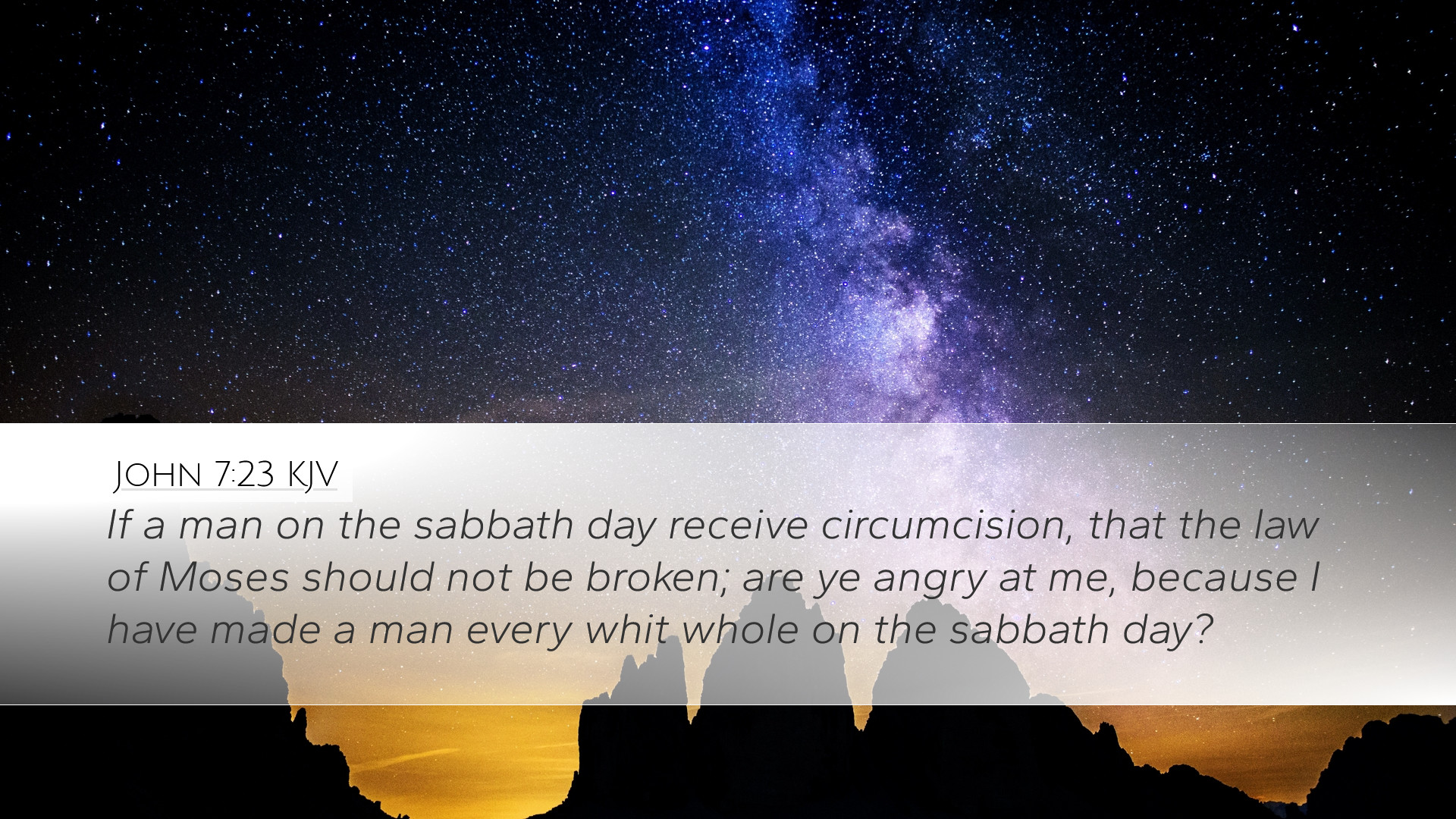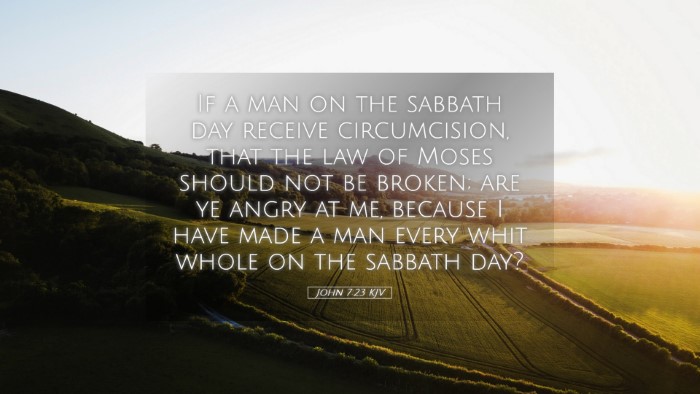Commentary on John 7:23
In John 7:23, we find an intriguing verse that sheds light on the nature of the law and the authority of Jesus. The verse states:
"If a man receives circumcision on the Sabbath, so that the law of Moses may not be broken, are you angry with Me because I made an entire man well on the Sabbath?"
Contextual Background
This passage takes place during the Feast of Tabernacles, a significant Jewish festival. Throughout this period, Jesus is teaching in the temple and facing mounting opposition from the religious leaders. The intricate interplay between Jesus' actions and the Jewish laws provides a critical backdrop for understanding this verse.
Analysis of the Verse
At first glance, this verse appears to address the tension between religious law and compassionate action. Jesus points to the practice of circumcision, a command from the Mosaic Law, and highlights a perceived hypocrisy among the Jewish leaders. To delve deeper, we can examine several key insights from public domain commentaries.
Matthew Henry's Commentary
Henry's Insight: Matthew Henry emphasizes the significance of Jesus' question, highlighting that it exposes the inconsistency in the religious leaders' reasoning. He points out that if they are willing to perform circumcision—a necessity for maintaining the covenant on the Sabbath—then how can they condemn Jesus for healing a man on the same day?
Henry argues that this illustrates a fundamental truth about the law: it is intended to uphold mercy and compassion. He proposes that the administration of the law must reflect the heart of God, which desires humanity's well-being rather than an unyielding adherence to rituals.
Albert Barnes' Notes
Barnes' Interpretation: Albert Barnes provides a detailed examination of the custom of circumcision, noting that it served both a religious and cultural purpose within the Jewish community. He asserts that the leaders’ anger towards Jesus stems from their rigid interpretation of the Sabbath law, which neglected the spirit of the law—the call to love and heal.
Barnes further points out that Jesus’ actions exemplified true obedience to God’s will, which was rooted in acts of kindness and healing, even on the Sabbath. He emphasizes that the leaders’ selective application of the law reveals their moral and spiritual blindness.
Adam Clarke's Commentary
Clarke's Perspective: Adam Clarke expands on the concept of healing as an act of spiritual restoration and physical well-being. He stresses that Jesus' act of healing encompasses the essence of the law, showing that authentic practice of faith transcends mere rule-following.
Additionally, Clarke points out that Jesus' question serves to provoke introspection among the leaders. Instead of defending their rigid adherence to the law, they should consider the deeper implications of love, mercy, and humanity encapsulated within the commandments of God.
Theological Implications
The theological implications of John 7:23 are profound. Jesus not only challenges the legalistic interpretations of Sabbath observance but also redefines what it means to honor God’s law in the context of compassion and mercy.
Legalism vs. Mercy
Both the commentaries reflect the critical theme of mercy over legalism. The focus here is on the heart of God’s law, which seeks to foster life and healing rather than strict adherence that leads to condemnation. This theme resonates throughout the New Testament, particularly in Jesus’ ministry, where he consistently upheld the dignity of life over ritualistic practices.
Application for Today
For pastors, scholars, and theologians, John 7:23 serves as a powerful reminder of the call to embody a faith that prioritizes compassion and understanding over strict legalism. In confronting societal issues and moral dilemmas, the reflections from these commentaries invite modern believers to seek the heart of God's intentions behind commandments.
Conclusion
As we reflect on John 7:23, we are led to understand that true adherence to God’s law requires an alignment with His character. Jesus’ powerful question invites us to consider how we apply His teachings in our lives and communities. When we place love, mercy, and care for others at the forefront, we align ourselves more closely with the will of God, reflective of the heart of Jesus.


